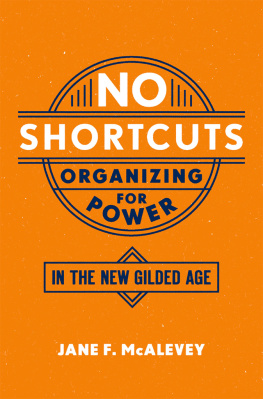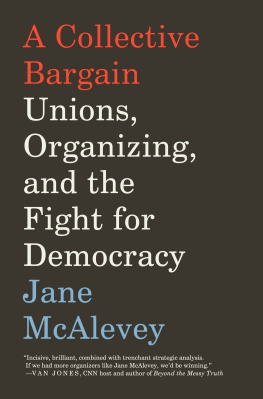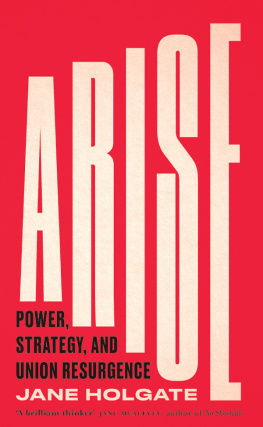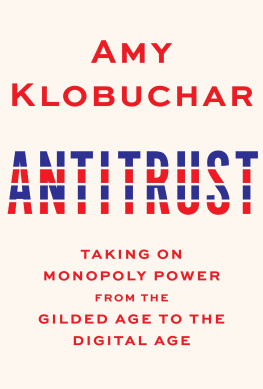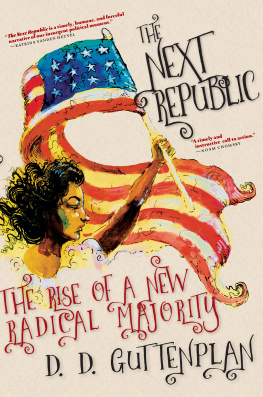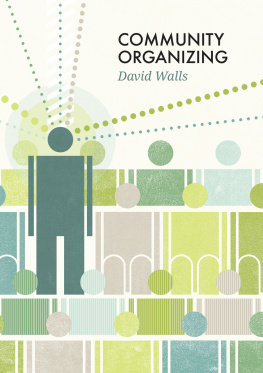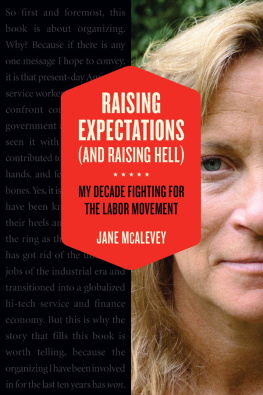Jane F. McAlevey - No Shortcuts: Organizing for Power in the New Gilded Age
Here you can read online Jane F. McAlevey - No Shortcuts: Organizing for Power in the New Gilded Age full text of the book (entire story) in english for free. Download pdf and epub, get meaning, cover and reviews about this ebook. year: 2016, publisher: Oxford University Press, genre: Politics. Description of the work, (preface) as well as reviews are available. Best literature library LitArk.com created for fans of good reading and offers a wide selection of genres:
Romance novel
Science fiction
Adventure
Detective
Science
History
Home and family
Prose
Art
Politics
Computer
Non-fiction
Religion
Business
Children
Humor
Choose a favorite category and find really read worthwhile books. Enjoy immersion in the world of imagination, feel the emotions of the characters or learn something new for yourself, make an fascinating discovery.
- Book:No Shortcuts: Organizing for Power in the New Gilded Age
- Author:
- Publisher:Oxford University Press
- Genre:
- Year:2016
- Rating:3 / 5
- Favourites:Add to favourites
- Your mark:
- 60
- 1
- 2
- 3
- 4
- 5
No Shortcuts: Organizing for Power in the New Gilded Age: summary, description and annotation
We offer to read an annotation, description, summary or preface (depends on what the author of the book "No Shortcuts: Organizing for Power in the New Gilded Age" wrote himself). If you haven't found the necessary information about the book — write in the comments, we will try to find it.
No Shortcuts: Organizing for Power in the New Gilded Age — read online for free the complete book (whole text) full work
Below is the text of the book, divided by pages. System saving the place of the last page read, allows you to conveniently read the book "No Shortcuts: Organizing for Power in the New Gilded Age" online for free, without having to search again every time where you left off. Put a bookmark, and you can go to the page where you finished reading at any time.
Font size:
Interval:
Bookmark:



Oxford University Press is a department of the University of Oxford. It furthers the Universitys objective of excellence in research, scholarship, and education by publishing worldwide. Oxford is a registered trade mark of Oxford University Press in the UK and certain other countries.
Published in the United States of America by Oxford University Press
198 Madison Avenue, New York, NY 10016, United States of America.
Oxford University Press 2016
All rights reserved. No part of this publication may be reproduced, stored in a retrieval system, or transmitted, in any form or by any means, without the prior permission in writing of Oxford University Press, or as expressly permitted by law, by license, or under terms agreed with the appropriate reproduction rights organization. Inquiries concerning reproduction outside the scope of the above should be sent to the Rights Department, Oxford University Press, at the address above.
You must not circulate this work in any other form and you must impose this same condition on any acquirer.
CIP data is on file at the Library of Congress
ISBN 9780190624712
eISBN 9780190624736
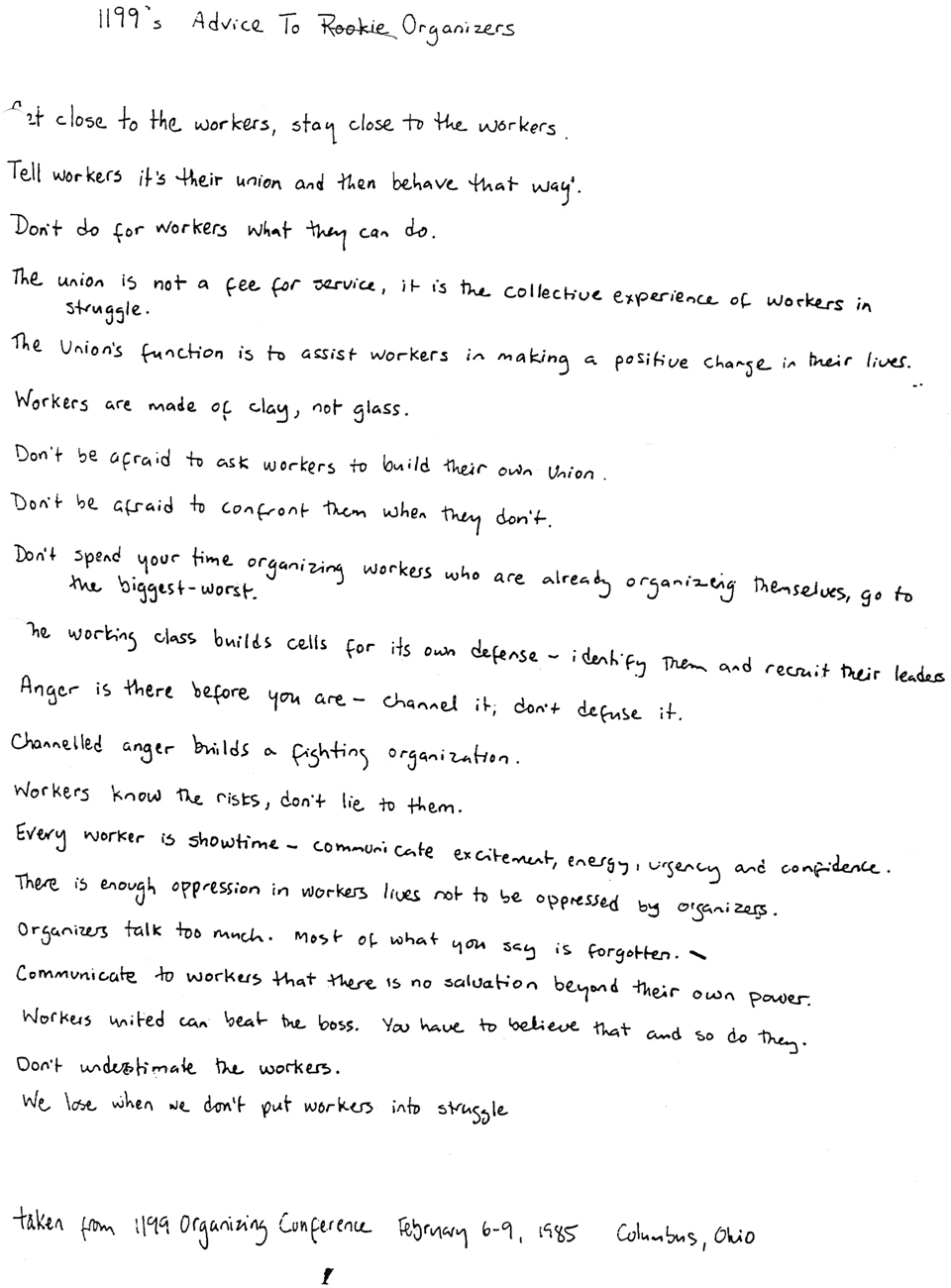


WHEN WE MASTER SOMETHING NEW, books can help, but a good mentor is worth a thousand books. The acknowledgments in this book can best be viewed as an update and (super) friendly amendment to the acknowledgments pages in my first book, Raising Expectations (and Raising Hell), (Verso Press, 2014). Any intelligence I display in this book is the cumulative wisdom of many decades of work in the field, where I had, literally, thousands of teachers. Raising Expectations was about union campaigns I participated in and mostly led. For this book, my new academic mentors told me firmly, despite my at times fierce protestations, that I had to use campaigns that Id had nothing to do with for my empirical evidence. They were correct, of course.
I havent changed my opinion one iota of the many people to whom I owe tremendous thanks for their patience with me, for sharing key life lessons with me, for the endless time and skill theyve invested in my thinking and my work, and, often, for their love. But I will limit my acknowledgments here to the players who have specifically helped me get through five years of a Ph.D. program.
Mapping my academic pursuit chronologically, I must first thank two people more than any others, the ones who talked me into the doctoral program: Larry Fox and Frances Fox Piven (who are not related on the Fox side, though I quickly discovered that they shared the gene for wicked intelligence). Id had zero plans to attend graduate school, and couldnt imagine why I should shift out of full-time organizing. But when warfare inside the trade union movement led to the destruction of years of good efforts and dashed hopes and dreams and possibilities for thousands of workers, I knew it was time to step outside the fray, in order to observe and better reflect on and understand what was happening, and what it meant for the future. At that very moment, coincidentally, I received an early-stage cancer diagnosis that would require a full year of nothing but medically focused pursuits. It was during my Sloan-Kettering year that Bob Ostertag talked me into writing down my reflections and offered to mentor me through a book. That project, with enthusiastic support from my Verso editor Andy Hsiao, became Raising Expectations (and Raising Hell). Frances and Larry were early readers of the manuscript, and each came to the same conclusion: I should weather the political storm generated by my first book by going to graduate school for a few years. Theyve always given me good advice, and I thank each of them enormously for guiding me through complicated chapters of my life. Frances became in academia what Larry had been in my SEIU years, an incredible mentor.
Once I made the decision to go back to school, there was the vexing issue of how to afford life in New York City as a graduate student. My sister Catherine, whod always held higher education as a top value, was thrilled with my decision, and along with her life partner, Debra Hall, generously offered to support my housing needs for my first two years in New York. If my book has a dedication, its certainly to Catherine, who lost her own cancer fight during my third year in graduate school. I loved her wildly, and she was ecstatic about my getting a Ph.D. My brother Ben and his wife, Melissa, and her mother, Anne Barnes, also provided great logistical support that made some of my graduate school research easier, and more of it possible. My sister Bri has been a full-on cheerleader and supporter, as have my many other wonderful siblings and extended family. Beverly Feuers endless stories of how her generation, the CIO generation, built their unions strong has served as a timeless inspiration to my research.
My cohort, the 2010 Sociology cohort, is an extremely talented, fun, smart, supportive, and incredible teama model of true solidarity. Most are women; a few are men we consider honorary women; all of them guided me through the early coursework and big exams. I could not have gotten through those first two years without my cohort. Marnie Brady and Bronwyn Dubchuck-Land were regular and crucial readers at every stage of my book work. They were patient and flexible, constantly trying to teach me to use signposts in my academic writing and to persuade me to say the same thing three ways in the same chaptera concept with which I still struggle. Erin Michaels, Dominique Nisperos, and Martha King pulled me successfully through two semesters of Statistics. (I chose not to attempt OLS regression in my final work, despite all they taught me!)
My committee, headed by Frances Fox Piven, and consisting of Dan Clawson, Bill Kornblum, and Jim Jasper, were terrific. They gave real meaning to the word patience. Each of them played a different and special role in helping me through this process. Please hold them harmless for any flaws, weak spots, bad ideas, or problems in this book, but do credit them for all the good. They were encouraging, they generously made time for me, and, like my cohort, they had to help me transition from being a field organizer to a later-in-life academicat times a very challenging endeavor. I have enormous gratitude for my committee.
Along the way, I had a robust, informal committee reading and commenting on various pieces of my writing. A team of overworked union and community organizers and union researchers, my reality checkers, whose lives are fully in the field, read either the entire dissertation or full first draft of the book and offered cogent comments: Ian Allison, Drew Astolphi, Seth Borgos, Sarah Buckley, Jonah Gindin, Becca Kirkpatrick, John Lacny, Katie Miles, and John Page. Their solidarity, enthusiasm, time, and dedication to making this book stronger has been remarkable.
Font size:
Interval:
Bookmark:
Similar books «No Shortcuts: Organizing for Power in the New Gilded Age»
Look at similar books to No Shortcuts: Organizing for Power in the New Gilded Age. We have selected literature similar in name and meaning in the hope of providing readers with more options to find new, interesting, not yet read works.
Discussion, reviews of the book No Shortcuts: Organizing for Power in the New Gilded Age and just readers' own opinions. Leave your comments, write what you think about the work, its meaning or the main characters. Specify what exactly you liked and what you didn't like, and why you think so.

